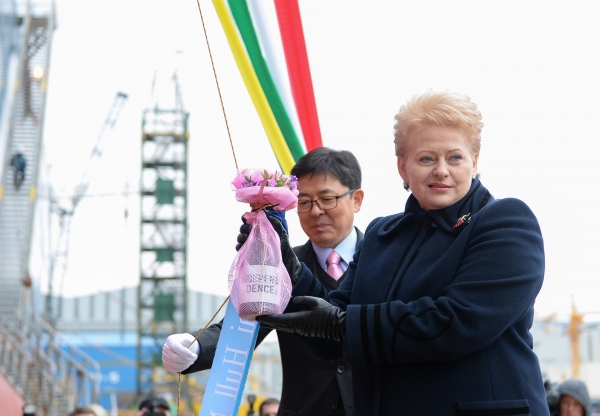Croatia LNG Imports 'Could Start 2018'
Croatia “might” just have a floating LNG import terminal at Krk by 2018 serving the wider region, Mladen Antunovic, managing director of state-run developer LNG Hrvatska said in Brussels last week. Critics however point to wrangles over transiting gas from Croatia to Hungary as a potential pitfall.
The idea of an LNG terminal at Krk has been on the table for over 20 years, said Antunovic, but low LNG prices now have provided “a window of opportunity where the project will have to materialize,” he told theLNG - Dream or Reality for the Danube Region seminar on May 26 at Hungary’s permanent representation to the EU in Brussels: “We just need a couple of milestones in order to reach a final investment decision."
Antunovic said that LNG Hrvatska was looking to charter a floating storage and regasification unit (FSRU) following advice that this was the best step from the European Commission. An FSRU can be operational in 2018 and “might be”, he said, noting that his company is looking to sign an initial five-year charter from a shipowner with an option to extend that by five years.
Contacts have been made with FSRU shipowners already, Antunovic later told NGE. A tendering process is due later this year, with the hope that final investment decision is taken “early in 2017”.
Following a non-binding open season, LNG Hrvatska is looking to sign memos of understanding (MOUs) for binding commitments covering some 5bn m3/yr to 2024, then 2bn m3/yr from 2025-40, although Antunovic said the “final results may be slightly less.”
Ten to 20 years ago, Krk was expected to host an onshore 10bn m3/yr onshore LNG import terminal costing €700mn or more, backed by Austrian OMV, German E.ON and RWE and French Total, all of which long ago exited the venture.
In contrast the cost of chartering an FSRU today is $40mn-$50mn/yr, say industry sources. Once latent demand for LNG in the region had been proven after five or ten years, a land-based terminal could be built instead, suggested Antunovic.

Lithuanian President Dalia Grybauskaite launches the FSRU Independence in South Korea in February 2014, which became the first LNG import terminal in formerly communist eastern Europe (Photo credit: (c) Lithuanian presidency)
But the head of illiquid gas markets origination at French Engie, Willem Coppoolse, told the same event that the cost of transiting gas between Croatia and Hungary was “killing gas demand” and that fertiliser plants were being shut down by competition from rival plants in Algeria and Egypt which were using cheaper gas.
Croatian and Hungarian gas grids have disagreed in recent months over how to expand transit capacity. Speakers at the Brussels event asked if serious consideration has been given to whether zero transit charges could be introduced between the two countries.
Gyorgy Harmati, chief adviser to the CEO of Hungarian state power utility MVM, also voiced concern that future regional gas demand was uncertain, and that MVM would weigh up new LNG against potential gas sources such as offshore Black Sea, the Southern Corridor, or the eastern Mediterranean.
But Peter Kaderjak, a former Hungarian regulatory chief, responded to Harmati by saying: “If LNG is not encouraged now, then it will be back to the old days of Gazprom as the dominant supplier.” US firm Cheniere Energy's vice president for origination and marketing John Shoobridge concurred: “This is the best moment to engage with LNG as buyers; there’s no better moment.”
Earlier on May 26,a top EU officialtold the same Brussels event that investing in eight infrastructure projects, including Krk, could knock over €1bn/yr off the region’s gas bill, pointing to Lithuania’s 2014 charter of an FSRU to kickstart LNG imports and reduce the Baltic region’s dependency on Russian gas – an argument made, not for the first time, by Lithuania’s energy minister Rokas Masiulis on June 2.
Mark Smedley


